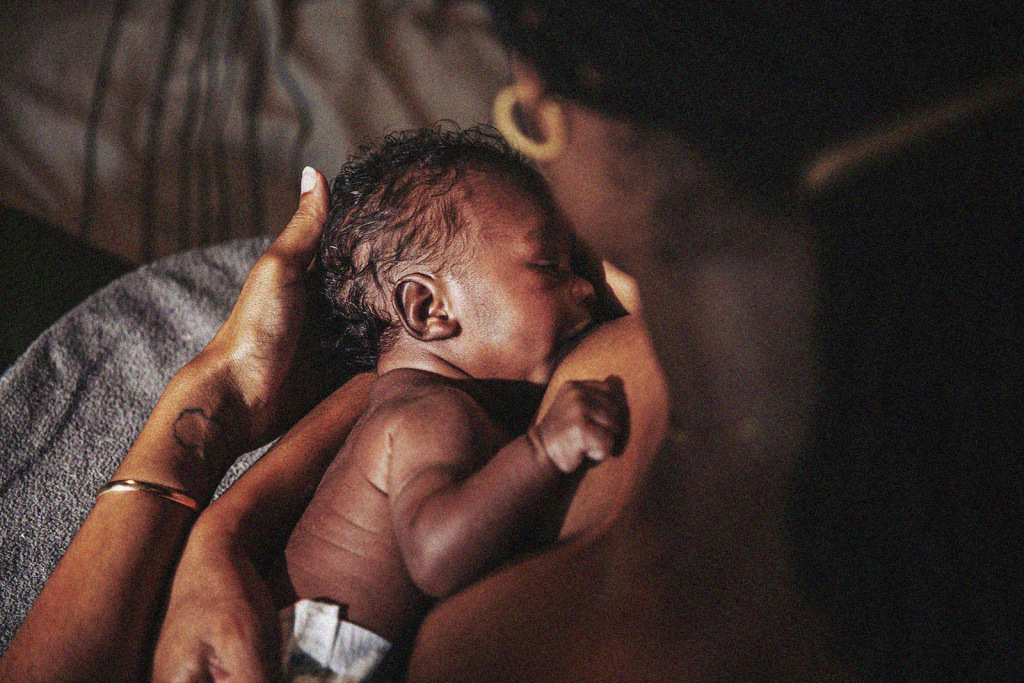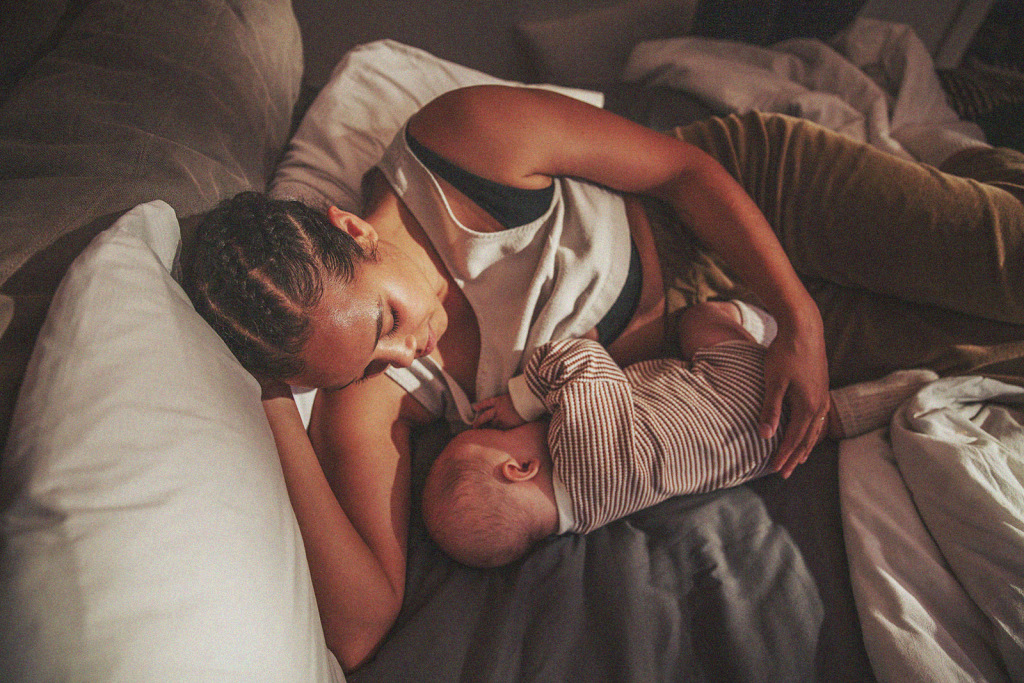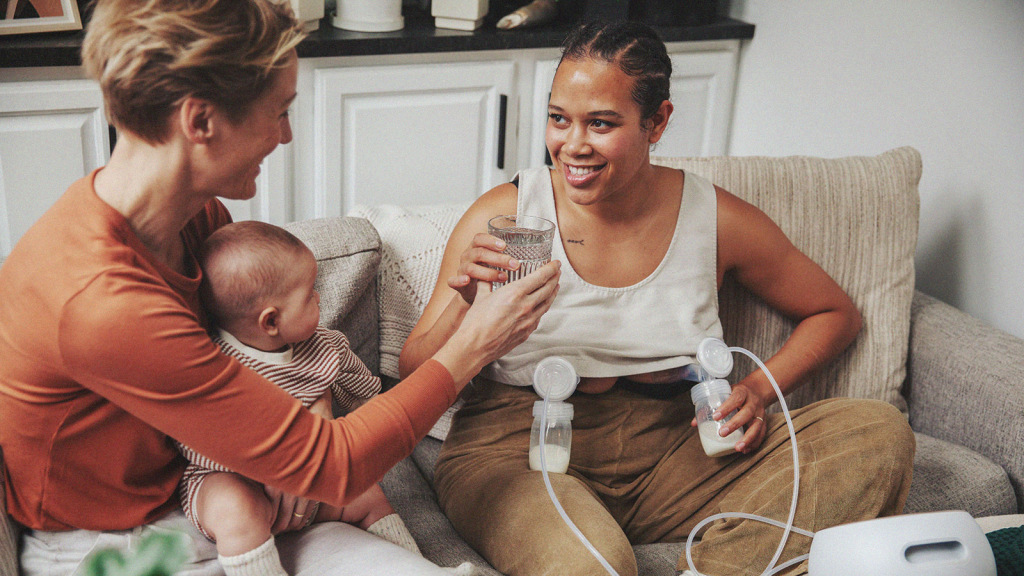Caffeine and breastfeeding: What you need to know
Unless you’ve got a two-venti-a-day habit, you likely won’t have to change much
Even if you weren’t a caffeine addict before you became a parent, adding a loud, restless baby and a whole new set of responsibilities to your life may have you considering upgrading your morning java intake. But when you’re breastfeeding, what you consume can affect both your body and your baby. So what does that mean when it comes to your (life-sustaining) caffeine intake? Here are the facts you need to know.
Do I need to abstain from coffee if I’m breastfeeding?
The answer is no! Caffeine while breastfeeding is perfectly safe for both mother and baby. Not that you won’t have to heat up your coffee four times before you make it through an entire cup — motherhood is busy! But for real, only a tiny amount — 0.06 to 1.5 percent of the maternal dose — will make its way into your breastmilk, and caffeine levels peak about one to two hours after ingestion. Keep in mind that caffeine can be found in many sources: coffee, tea, soft drinks, energy drinks, and even chocolate, as well as some medications and herbal supplements.
Is my baby sensitive to caffeine?
Usually, with moderate consumption, you won’t notice any effect on your baby. In fact, research has found that there is no correlation between infant sleep habits and a mother’s caffeine consumption during pregnancy and while breastfeeding. That said, some new babies are sensitive to caffeine, especially if their mothers avoided it completely during pregnancy. If you notice your baby is fussy or has trouble sleeping after you’ve had caffeine, consider cutting back or eliminating it for a couple of weeks and see if it makes a difference. But also know that a baby’s sensitivity to caffeine will decrease as he or she grows.
Does caffeine lower milk supply?
After being studied extensively, caffeine has not been found to decrease milk supply. In fact, one study found it can actually stimulate milk production. That being said, if your baby is sensitive to caffeine and doesn’t nurse well after you consume it, your supply could take a hit indirectly.
Will caffeine affect me differently when I’m breastfeeding?
On its own, caffeine doesn’t usually affect breastfeeding folks differently. But when you add in sleep deprivation, hormone fluctuations and everything else a new mother or parent is dealing with, that extra jolt might have slightly different effects. Watch the timing of your caffeine consumption so it doesn’t interfere with your sleep when you do get the rare chance to rest. Research shows that consuming caffeine within six hours of bedtime can cost you an hour of sleep and has a negative impact on the quality of your sleep. Also be aware of your hydration. Caffeine is a diuretic, so while a single cup of coffee is probably not a problem, a larger amount might require you to rehydrate. And caffeine has been found to cause increased anxiety in some people—something to pay attention to, as postpartum anxiety can already be an issue for approximately 10 to 17 percent of new moms.
Is caffeine good for you? Should I cut back or keep it consistent?
Besides providing a boost of energy and focus, caffeine — specifically coffee — can have positive health benefits and even help you live longer. But if you or your baby are feeling some negative effects, go ahead and scale back your intake or eliminate it altogether. Just take it slow to help avoid “withdrawal” symptoms, such as headaches and irritability. And if it feels like your usual amount just isn’t doing the job anymore, you could be right. Research has shown that in cases of chronic sleep deprivation, caffeine can lose its performance-enhancing effects. You can develop a tolerance but it’s a fine balance —consistently increasing the amount you consume may cause you to overdo it.
Should I change my habits from pre-pregnancy to pregnancy to postpartum?
Research shows that consuming up to 400 mg a day, about one Venti cup from Starbucks, has no negative health risk for adults. However, it’s recommended that pregnant women limit themselves to 200 mg a day or less. Some sources recommend a 300 mg maximum amount for breastfeeding people, a little less than a Grande at Starbucks, while others say up to 750 mg is okay. The right amount of caffeine can vary widely from baby to baby. If you notice it seems to be having an effect on naptime, consider scaling back, or timing your coffee break strategically around your nursing schedule.
Rest assured, you should be able to enjoy a couple of cups of coffee — and its energy-boosting effects—without worry. But if you are still concerned about caffeine but want to boost your energy, remember to stay hydrated, eat nutritious foods, and try to sleep when the baby sleeps. Remember that any time you have a question or concern about breastfeeding, an International Board Certified Lactation Consultant (IBCLC) at The Lactation Network is here to help.
We’re here for you, every step of the way. We work with your insurance to provide in-home, in-office, or telehealth visits with an IBCLC.




